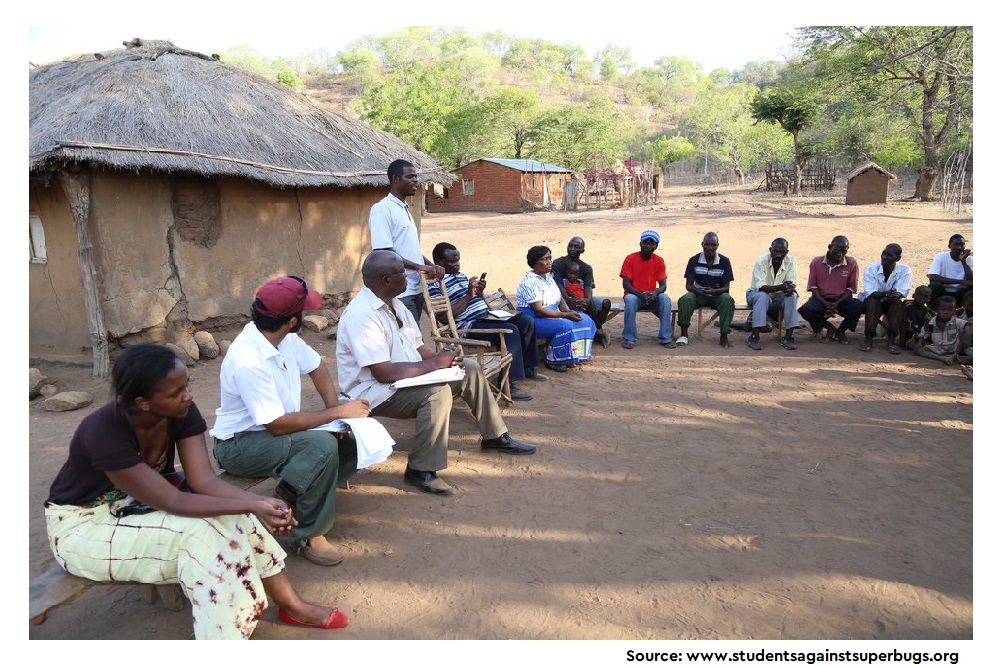Antimicrobial resistance (AMR) is a One Health problem underpinned by complex drivers and behaviours. This is particularly so in low – and middle-income countries (LMICs), where social and systemic factors fuel (mis)use and drive AMR. Behavioural change around antimicrobial use could safeguard both existing and future treatments. However, changing behaviour necessitates engaging with people to understand their experiences. This publication describes a knowledge-exchange cluster of six LMIC-based projects who co-designed and answered a series of research questions around the usage of Community Engagement (CE) within AMR. Findings suggest that CE can facilitate AMR behaviour change, specifically in LMICs, because it is a contextualised approach which supports communities to develop locally meaningful solutions. However, current CE interventions focus on human aspects, and demand-side drivers, of AMR. Our cluster suggests that broader attention should be paid to AMR as a One Health issue. The popularity of mixed methods approaches within existing CE for AMR interventions suggests there is interdisciplinary interest in the uptake of CE. Unfortunately, the specificity and context-dependency of CE can make it difficult to evaluate and scale. Nevertheless, we suggest that in synthesising learnings from CE, we can develop a collective understanding of its scope to tackle AMR across contexts.
To learn more, please visit the website of Taylor & Francis (Link).







